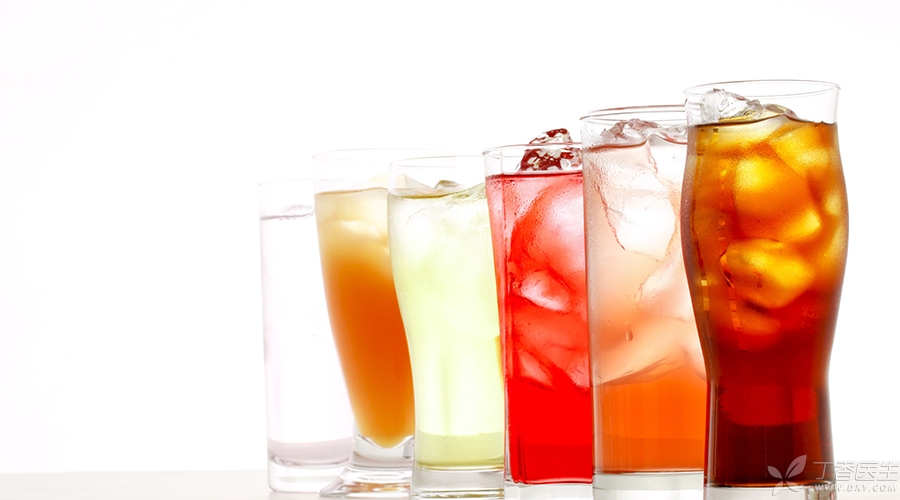
There are many kinds of additives in beverages. In the eyes of many people, additives are just like the scourge. They wish they didn’t have any.
What’s more, it is also widely spread on the Internet that [sweeteners in beverages can cause cancer and leukemia in children…], which is the so-called “there is no smoke without fire”. The Internet says so, it must be because sweeteners are not good, even if they do not cause cancer, they are not good for the body.
So, really can’t give the child any more drinks. Poor little eyes? Can’t see, can’t see, can’t see at all.
Er, wait, although Ding Ma has always stressed that it is not recommended to give children too many drinks, sweeteners cause cancer? What kind of rumor is this?
Is the sweetener what?
Sweeteners are a kind of synthetic food additives that can provide sweetness to food. In general beverages, there are two common sweeteners: saccharin and aspartame.
For a long time, people have a deep obsession with [sweetness]. Sweet food releases [serotonin] from the brain, which can make people feel happy, but traditional sugars tend to have higher calories.
Sweeteners are different. Their sweetness is very high, hundreds of times that of sucrose, but their calories are very low or even negligible. They can not only satisfy the desire for sweets, but also avoid worrying about intake of more calories and hyperglycemia.
For the food processing industry, sweeteners are also a real good thing, which can reduce the production cost.

Can sweeteners cause cancer?
Although Ding Ma talked about the benefits of some sweeteners, for parents, the most important concern is safety.
This synthetic thing, eat into the mouth, won’t eat a whole body problem? Will it not affect your health?
In fact, under the condition of controlling intake, sweeteners have little effect on human body.
The following Ding Ma will take the two most common sweeteners, saccharin and aspartame, as examples to talk about the safety of sweeteners.
1. Saccharin
At first, people questioned sweeteners because a study in the 1970s reported that when rats were fed a large amount of saccharin (the amount of hundreds of cans of cola), the risk of bladder cancer increased significantly.
However, the literature in several heavyweight medical journals later confirmed that the experiment itself had a very serious loophole, that is, the carcinogenic principle of rats was not applicable to human beings, that is to say, it could not prove that a large amount of sweetener would also lead to an increase in the risk of human cancer.
In 2000, the United States abolished relevant laws and regulations. Saccharin foods need not be labeled with health warning labels, but can be used according to regulations.
At present, saccharin is also allowed to be used as a sweetener in our country, and its daily intake safety allowance is 2.5 milligrams per kilogram of body weight.
2. Aspartame
The earliest research on aspartame was also carried out in rats, and it was concluded that aspartame can cause cancer in rats. But similarly, like saccharin, the carcinogenicity in rats is not applicable to humans.
Later, the National Institutes of Health and others conducted many authoritative studies and found no correlation between aspartame and brain tumors or hematological tumors.
Now, FDA calls aspartame [one of the most thoroughly studied food additives] and its safety [without doubt].

Can the children rest assured to drink?
Not really. (Knock on the blackboard! )
Ding Ma only said that taking sweeteners at a certain dose has little effect on health, but it does not mean that you can drink drinks without scruple.
Moreover, for beverages, the biggest problem lies not in sweeteners, but in other ingredients.
- Sugar: Most beverages still contain a large amount of sucrose, After drinking two cans of drinks, Calories are equivalent to another meal. Drink too many sweet drinks, Children with obesity, dental caries and other problems are easy to find children. Caffeine: Functional drinks contain a lot of caffeine, While children’s central nervous system is not yet fully developed, Long-term drinking is likely to cause poisoning and even death. Carbonated: Long-term drinking of carbonated beverages in large quantities, teeth in acidic environment for a long time, will occur [demineralization], is more vulnerable to tooth damage. Pigment: long-term drinking of cola, coffee and other beverages, the pigment in which will cause changes in tooth color.
Therefore, it is still possible to give children drinks, but limited, limited, limited. Occasionally drink to relieve appetite, it is OK.
In daily life, it is healthier for children to drink more water. Do you really want to drink something else? There are also milk, yogurt, soya-bean milk, fruit and vegetable juice, etc. Don’t always stare at drinks.
